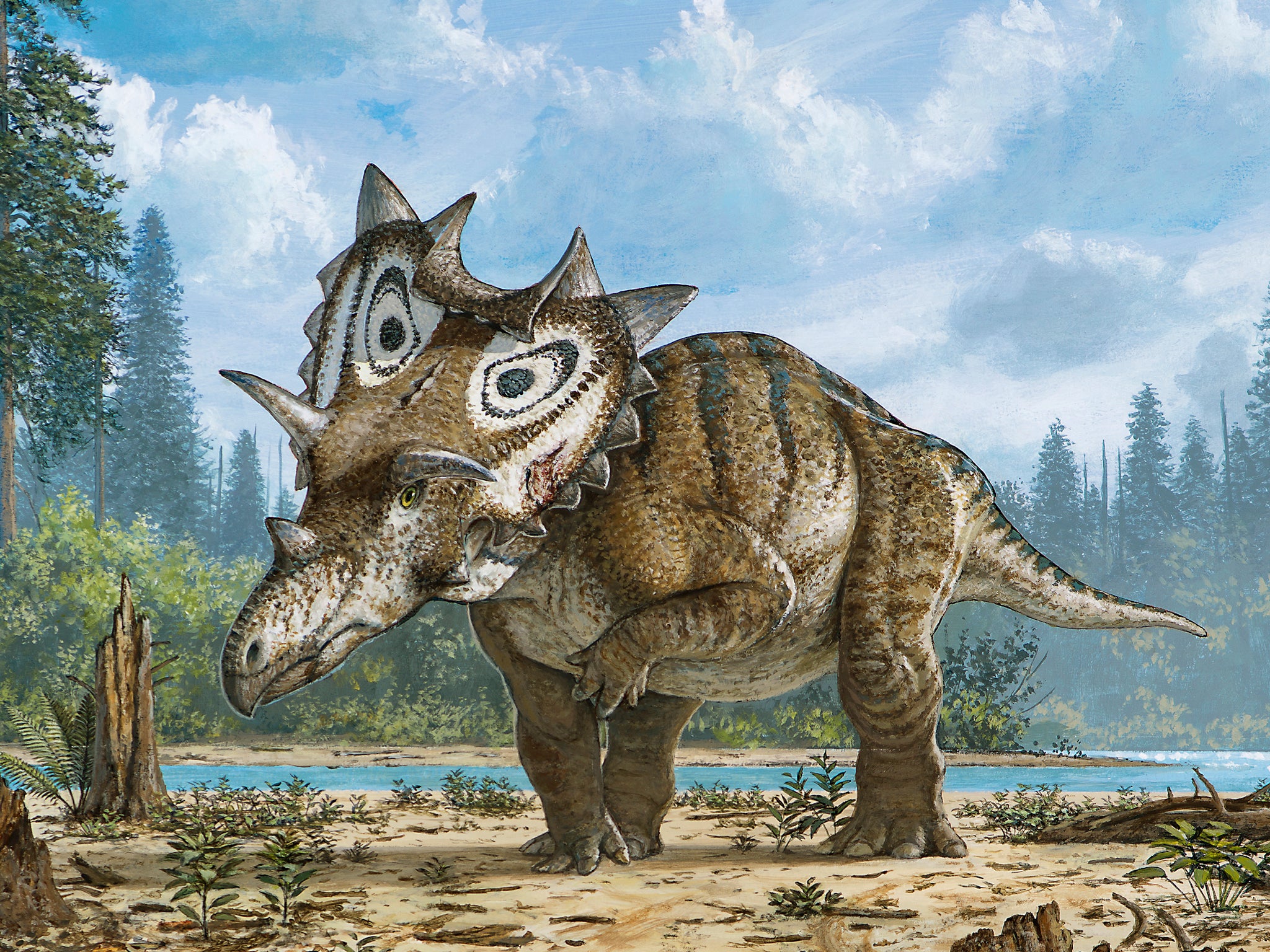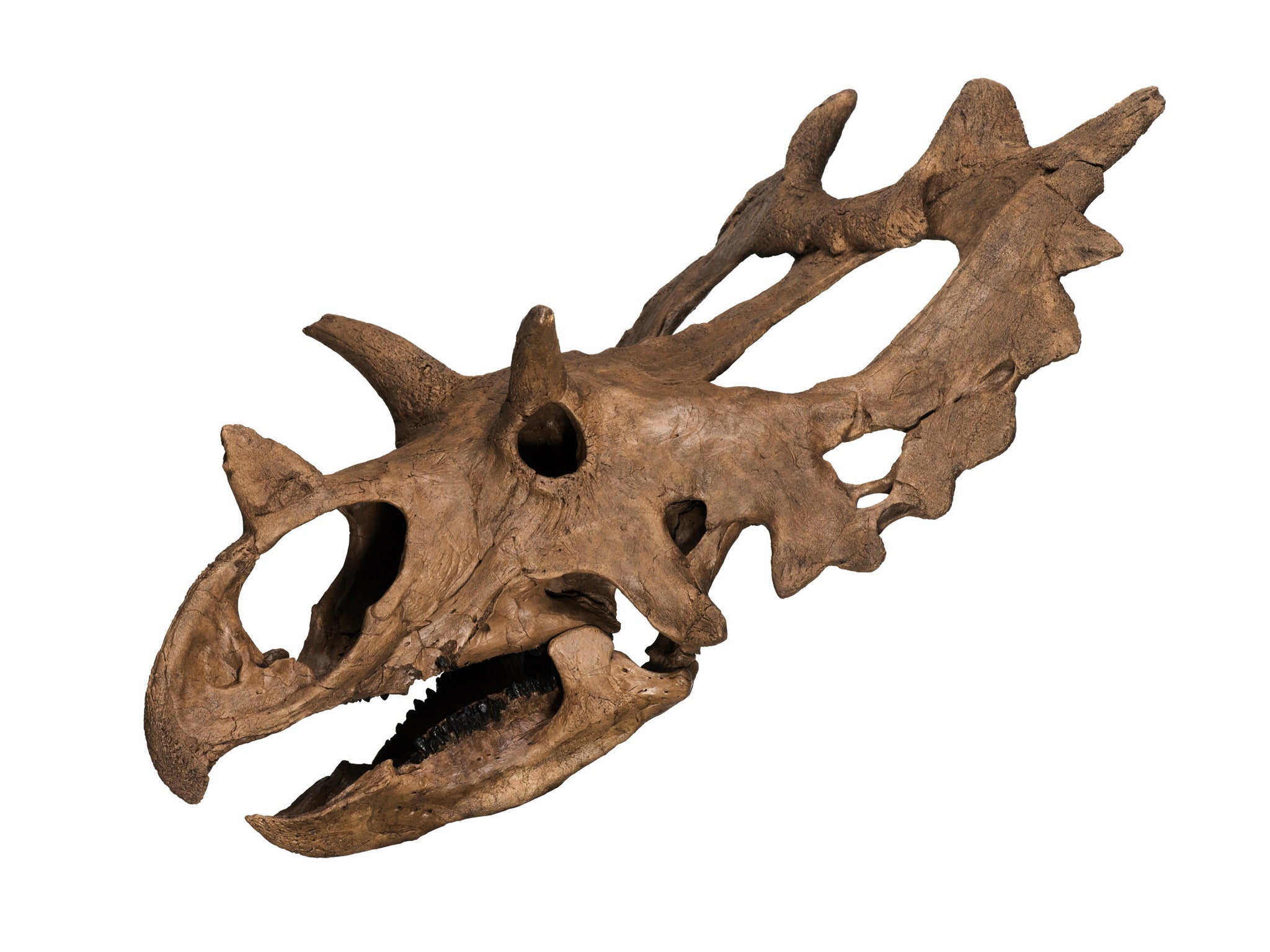Novice fossil collector in Montana 'accidentally' discovers a new dinosaur species
A retired nuclear physicist made the 'accidental' discovery in 2005

An amateur Montana fossil hunter stumbled across a major discovery more than a decade ago when bones he found turned out to be a new species of dinosaur, researchers announced.
Retired nuclear physicist Bill Shipp discovered the leg bone for “Judith”, known to scientists as Spiclypeus shipporum, after he hired an amateur paleontologists to teach him how to search for fossils, The Associated Press reports.

Judith, named for the Judith River rock formation near where it was found, is believed to be a close family member of the more well known horned dinosaur, the triceratops, researchers said in a report published in the PLUS ONE scientific journal. It lived in what would become Montana nearly 7million years ago.
“I found it accidentally on purpose,” Mr Shipp told the AP. “I was actually looking for dinosaur bones, but with no expectation of actually finding any.”
Researchers found evidence of infection in the 15-foot, four ton plant-eater’s leg, that research Jordan Mallon said would have left the animal vulnerable to predators.
“It’s an exciting story, because it’s a new species, and yet we have this sort of pathetic individual that suffered throughout its lifetime,” Mr Mallon, a paleontologist at the Canadian Museum of Nature, said.
“If you’re hobbling along on three limbs, you’re probably not going to be able to keep up with the herd.”
Join our commenting forum
Join thought-provoking conversations, follow other Independent readers and see their replies
Comments
Bookmark popover
Removed from bookmarks